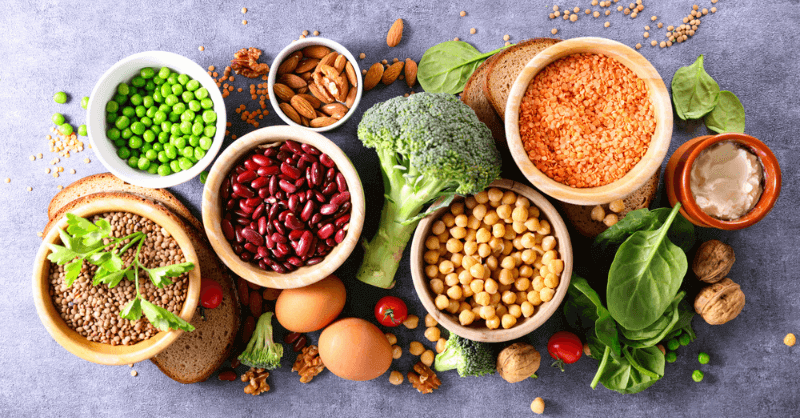20 healthy foods to eat everyday, The past two decades have seen a significant growth of health conscious physical fitness enthusiasts. Along with the years came meticulous diet plans and nutrition charts crammed in daily schedules. But shouldn’t there be some simpler way to eat better and stay healthy?
After so many diet creators succeeded in making the best eating habits and food choices available. We thought it would be great to find out the healthiest foods that you can consume on a daily basis.
Along with 20 healthy foods to eat everyday we’ve put together an advice section to help you maintain an overall moderation on your food habits to eat everyday. Consider it as a rule of thumb and you’ll be in better shape with comparative ease.
Table of Contents
20 Healthy Foods to Eat Everyday
Truth be told eating healthy is easier said than done. With so many labels to read and packaging to choose from it can seem daunting actually what to put in your cart. To make that decision making simpler, here are our 20 Healthy foods to eat everyday. So be sure to add these to your grocery list.
1. Olives
While the occasional martini may contain an olive or two, there are better reasons to have olives.! While providing vitamins A and E olives also help strengthen connective tissues protecting against UV radiation and improving skin tone. Rich monounsaturated fat content reduces LDL concentrations and improves heart health.
Plus, olives are full of flavonoids that are known to have anti-inflammatory properties. Green or black, Kalamata or pimento-stuffed olives will add flavour and nutrition to your diet whichever you choose.
2. Cucumber
Since there is a common analogy where humans are compared to cucumbers there is no doubt they are good for you in tons of ways. Cucumbers are delicious and light considering that they are 95% water. In fact, cucumber holds the most water by weight of any solid food.
When you aren’t in the mood to drink up, munching on some cucumbers or adding them to a salad can help rehydrate and improve overall digestion. On top of that they’re naturally low in calories, making them ideal for weight loss.
3. Jackfruit
Jackfruit is already the next big thing among wellness foods. While the creation of jackfruit tacos made it grand for vegan restaurants. The fruit is still not given enough credit. Deliciously sweet with meaty consistency jackfruit are rich in vitamins and minerals with little to no saturated fat or cholesterol. While most B-vitamins are found in non-plant sources, jackfruit is uniquely rich in vitamin B Complex, which is crucial for energy metabolism.
4. Avocados
Avocados are just amazing when it comes to health benefits! It’s understandable if you’re a huge fan of them already. Packed with vitamin C that boosts your immune system and healthy fats, they’re a fabulous addition to most recipes. Whether as a spread on sandwiches, or even plain on the side with eggs. Delicious and nutritious put together!”
For those of you struggling to get fiber in your system, avocados also offer up to 40 percent of your daily recommended fiber intake. So let guacamole flow(!)
5. Watermelon
There are more than a couple of good reasons why watermelons are one of the common foods nutritionists recommend. Want to improve complexion? Start sipping some red refreshing watermelon juice.
Similar to Cucumbers, Watermelons are one of the best ways to stay hydrated. Made up of mostly water they’re a rich source of electrolytes, particularly potassium, which is essential for cellular hydration. The hydrating contents help keep your skin flawless and fresh-looking inside and out.
The rind also is rich in vitamin C, which acts as a powerful antioxidant that improves skin elasticity and helps to slow aging. Moreover, L-Citrulline, which acts as a vasodilator helping to deliver oxygen to all the cells and lycopene, which helps rebuild collagen are found in large quantities. These compounds help prevent UV damage.
6. Greek Yogurt
Greek yogurt provides probiotics, protein, and calcium. Probiotics are healthy bacteria that live in your digestive tract. It’s the balance of good and bad bacteria that helps maintain your gut health, immunity, and overall health. Greek yogurt is also packed with protein, which helps us maintain muscle mass as we age and also gives us long-lasting energy. It can be an especially good source of protein for vegetarians. Greek yogurt also provides calcium (a mineral that many Americans fall short on), which helps maintain bone health.
7. Swiss Chard
Swiss chard is a healthy leafy green full of nutritional factors. It improves cardiovascular strength and helps keep your bones healthy. Plus, it’s a remarkable source of Vitamin K.
Vitamin K is an important bone-building vitamin responsible for calcium fixation to your bones. Without it our bones can’t absorb the calcium needed to grow and repair damage.
8. Chia Seeds
Chia seeds are tiny but they provide the highest omega-3 fatty acids helping to reduce risk factors for heart disease. They also contain huge amounts of fiber compared to any other food by weight.
You can stir some into yogurt, add to a salad dressing or sprinkle over oats. Similar to yogurt, chia seeds are a great source for non-animal based proteins.
9. Walnut Pesto
This one is by far the creamiest and tastiest item on this list. A savory sauce twirled with your pasta or smothered on a slice of toast? Obsession with pesto is understandable for us. Pestos is essentially a delicious blend of green herbs, olive oil, a bit of high-flavor cheese. Walnuts for their distinctly rich taste and omega-3s make for a great addition to this. The pesto herbs are the highest ORAC score (a measure of antioxidant levels) holders among any food.
10. Apple Cider Vinegar
Apple cider vinegar is a must have in any kitchen. This strong vinegar aids in preserving a healthy alkaline pH level for tissues and muscles. Which helps prevent weight problems, fatigue, inflammation, heartburn and acne.
11. Amaranth
Amaranth is a delight for both your taste buds and waistline. Similar to quinoa, amaranth is not a grain, rather it’s the seed of an amaranth plant. It is surprisingly high in calcium, and a good source of protein too.
Usually, these nutritious seeds are cooked in water, like rice, or you can have them raw. For people with Celiac disease amaranth is a wonder because it’s naturally gluten-free. It’s widely been shown to lower risk of chronic diseases such as heart disease and stroke as well.
12. Ginger
One of the fastest remedies to digestive problems, ginger contains the unique compound gingerol, which has been shown to manage symptoms such as nausea, indigestion and vomiting. This same compound also has anti-inflammatory properties, assisting in the relief of joint pain and inflammation.” Ginger tea to beat the bloat? We’ll get the kettle going.
13. Quinoa
Quinoa along with being a great source of protein also provides tons of fiber, and magnesium. It acts as a versatile plant-based protein that can replace rice in many recipes and is found in a variety of baked goods. You can add it to almost anything for an extra portion of protein in your intake. The crunchy texture works deliciously well with chocolate, adding extra richness to every bite. Mixing up your choice of grains can provide an even broader spectrum of nutrients, adding a delightful variety to your meals. Consider integrating unique options like those offered by Happy Beans, which focuses on nutritious and organic selections
14. Sweet Potatoes
Although packed with carbs, sweet potatoes are a rich source of beta-carotene, essential for healthy eyes and skin. Unlike regular potatoes, sweet potatoes are a great source of fiber as You can add them to casseroles, roast or steam as a side, or even put them in the fryer. Baking the potatoes sprinkled with cinnamon and a touch of butter makes for a sweet treat.
15. Hemp Seeds
Adding more plant proteins is key to any health diet. They can easily be substitutes for people who have difficulty tolerating nuts. Apart from the high protein content, hemp seeds are a rich source of fiber. Fiber is a unique plant phenomenon and you get none in animal foods. Hemp seeds are filled with anti-inflammatory omega-3 fats.
Vegetarians can rejoice about hemp seeds because they cover complete protein requirements. While being nutty and chewy, hemp seeds provide five grams of protein in just two-tablespoons.
Hemp seeds contain healthy fatty acids that promote heart and brain health while reducing inflammation, and help gut flora.
16. Goji Berries
Goji berries contain tons of plant-based antioxidants, that defend against disease-causing free radical damage. Studies show that they might even play a key role in favouring weight loss. A recent experiment showed overweight adults drinking goji berry juice over the span of 2 weeks had a decrease in waist circumference compared to the control group that received placebo.
You can add goji berries to your salads or oatmeal. Why not eat a handful fresh for a deliciously tangy boost of natural energy.
17. Kale
Kale is a great source of vitamins, minerals. Phytonutrients, a substance found predominantly in plants is believed to be beneficial to human health is packed in this leafy cabbage. These phytonutrients promote cell function and communication, while also ensuring that enzymatic reactions occur systematically within the body. You can lay down the foundation for a strong immune system to fight illness by adding kale to your diet.
18. Brussels Sprouts
You’re lucky if you’re not part of the brussel sprouts hate club. While being delicious, brussels sprouts provide a significant amount of vitamin A, which is crucial for eye growth and development, along with vitamin C.
They also contain plant chemicals i.e. lutein and zeaxanthin. These are nutrients that could help you reduce the risk of developing eye diseases like macular degeneration. Just a cup of the mini cabbages offers 100 percent of your daily vitamin C and Vitamin K requirement. This in turn helps your blood clot better and is necessary for building strong bones.
19. Wild Salmon
Salmon contain a good amount of omega-3 fatty acids being the oily delicacies they are. As well as providing a unique combination of antioxidants, including astaxanthin and DMAE making it pink. All of these are known to control inflammation and contribute to a youthful appearance.
20. Nut-Based Cream Cheese
Non-dairy love means nothing without these tantalizing spreads. For those of you who jumped off the dairy ship know it’s downright impossible to find a healthy cream cheese substitute. One that isn’t loaded with soy, additives, or partially hydrogenated fats.
Even if you’re new to eating non-dairy, or still enjoy dairy, you won’t be disappointed by nut based cream chase. With its creamy taste and natural ingredients, this mouthwatering, nut-based cream cheese is taking over the non-dairy world. Spice it up with chive flavor on a bagel, or even smear on a raw some portobello mushroom, or just have the classic richness as is.
Expert Advice Include the 5 Food Groups in your Diet
As we promised here’s the expert advice. Try to implement as many as you can for harmonizing benefits.
A healthy diet has to contain all the 5 major food groups. It’s not hard at all to include healthy foods from the five food groups into snacks and meals. Some suggestions,
Vegetables, legumes and beans
raw or cooked vegetables are a great snack food or incorporated into lunch and dinner. Salad vegetables can be improvised into sandwich filling. Vegetable soup can make for a calm and fulfilling lunch. Stir-fries, patties and curries make nutritious evening meals when centered around vegetables. Raw vegetables like carrot and celery sticks make for a quick snack ‘on the run’
Just keep a box of cut up raw vegetables front and centre in your fridge. It’s sure to catch your eyes when you’re looking for an easy snack. Bean-based dips such as hummus (made from chickpeas) make for a healthy companion with the crunchy veggies.
Fruit
Fruit is your ideal carryon snack and can be included with most meals. Try a banana with your breakfast cereal, an apple before morning tea, and some berries mixed in yogurt for an afternoon snack. Fresh whole fruit is recommended over fruit juice and dried fruit cereal.
Wholegrains
Rice, pasta and noodles are all grains but you need the least processed one to make it healthy. There are tons of varieties. Whole Grain breads and cereals provide more nutrients and fibre, which are essential for a healthy digestion. Check the fibre content for options that have 3 g or more of fibre per serving for the excellent choice.
Lean meats and poultry, fish, eggs, tofu,
Lean meats are the most abundant source of protein. However they contain many other essential amino acids, fatty acids and vitamins. While complete vegetarian diets can try to provide most of the protein requirements they struggle to provide the other nutrients present in meat.
Nuts, seeds
Both provide tons of protein. Instead of adding lean meat to your sandwich have a handful of nuts as a snack. Legumes and beans are also suitable to most meals.
Cut back on occasional foods
Most Australians have foods and drinks prepared outside the home on a regular basis. In 2015–16, Australians were spending around half of their weekly household food budget on foods prepared outside the home (including restaurant meals, takeaway foods and coffee).
Foods sold from takeaway outlets are high in saturated fats, processed sugars, added salt and kilojoules of calories. High consumption may lead to obesity and chronic disease, such as heart disease, stroke, type 2 diabetes, and even cancer.
Restaurant meals and takeaway foods
Most Australians have foods and drinks prepared outside the home on a regular basis. In 2015–16, Australians were spending around half of their weekly household food budget on foods prepared outside the home (including restaurant meals, takeaway foods and coffee).
The foods sold by takeaway outlets are often high in saturated (bad) fat, added sugars, added salt and kilojoules. High consumption may contribute to obesity and chronic disease, such as heart disease and stroke, type 2 diabetes, and some forms of cancer.
High sugar foods
Foods and drinks like soft drinks, biscuits, cakes are particularly high in added sugars and high in kilojoules. Unlike the commonly held misconception, sugar itself does not lead to diabetes. However, added sugars can lead to weight gain, and that increases a person’s risk of type 2 diabetes.
Drink alcohol in moderation
It is recommended that healthy people drink no more than two standard drinks on any given day to reduce the lifetime risk of harm from alcohol-related damage or conditions. No more than four standard drinks can be granted on a single occasion due to the risk of alcohol-related injury arising from that occasion.
High-salt foods
Less than 5 g of salt per day (even less than a teaspoon) is recommended for adults, considering normal blood pressure. Many consume as much as double this amount daily which is borderline suicidal. Too much salt in the diet is associated with an increased risk of high blood pressure, that is considered a risk factor for heart disease and stroke.
Related:
1. What Foods Can You Freeze? A Complete Guide on Freezing Food
2. Essential Things to Know about Reheating Food in the Oven
3. A Complete Guideline to Healthy Eating Pyramid
4. Healthy Food List: Top 50 Weight-Loss Friendly Foods
Ending Notes
It’s not only that these foods are delicious but are nutritious and can be incorporated into daily intake without much concern for side-effects (apart from nuts, be very wary of nuts!). This means you can add 3 items from this list to each week’s grocery list and you’ve got a 45 days meal plan that’s vibrant and exquisite.
Remember to buy local and buy fresh. That’s the best type of food to be very honest. Especially when you consider they contain microbiomes you’re familiar with. Not to mention the snarky zest your home folks add to the food. Sometimes a fresh home cooked meal is all you ever need.
FAQs
1. What are the highest antioxidant foods in the world?
Watermelon, walnut pesto, goji berries, and wild salmon are recognized as some of the highest antioxidant foods globally, offering diverse health benefits due to their rich nutrient content and potent antioxidant properties.
2. What are healthy snacks?
Healthy snacks are foods that are good for you and give you energy. They include things like vegetables, fruits, whole grains, lean meats, poultry, fish, eggs, tofu, nuts, seeds, legumes, and beans. These snacks help keep your body strong and ready for whatever you’re doing!
3. What are Top 20 best food for good health?
The top 20 best foods for good health include spinach, broccoli, sweet potatoes, blueberries, oranges, almonds, walnuts, avocado, salmon, tuna, eggs, Greek yogurt, quinoa, brown rice, lentils, chickpeas, tomatoes, carrots, and bell peppers.
4. What is the healthiest food in the world
The healthiest food in the world is generally considered to be fruits and vegetables. They are packed with vitamins, minerals, and antioxidants that are great for your body. Eating a variety of colorful fruits and veggies every day can help you stay healthy and strong.
5. What are the healthy grocery list?
A healthy grocery list includes fruits like apples, bananas, and oranges, vegetables such as spinach, carrots, and broccoli, whole grains like brown rice and quinoa, lean proteins such as chicken breast and tofu, and healthy fats like avocado and nuts.
6. What are nutrient dense foods?
Nutrient-dense foods are foods that are packed with lots of vitamins, minerals, and other nutrients that are good for your body. These foods give you a lot of nutrition without too many extra calories. Examples include fruits, vegetables, lean meats, fish, nuts, seeds, and whole grains.
7. What are the 10 most healthy foods?
The 10 most healthy foods include spinach, broccoli, avocado, salmon, sweet potatoes, blueberries, quinoa, Greek yogurt, walnuts, and beans.
8. What are the 20 benefits of healthy eating?
Eating healthy every day can boost energy levels, improve mood, support weight management, strengthen the immune system, enhance brain function, promote better sleep, aid digestion, reduce the risk of chronic diseases, support healthy skin, improve heart health, increase longevity, enhance bone health, help maintain a healthy weight, provide essential nutrients, support muscle growth and repair, reduce inflammation, support healthy aging, improve blood sugar control, boost metabolism, and increase overall well-being.
Recent posts
- What is an Early Help Assessment?
- Upskill for Impact: Online Guide to Boosting Your Teaching with Professional Development
- Free Online Courses: How to Study Online Courses for Free in 2024
- Challenging Behaviour in the Classroom [Types & Solution]
- The Impact Of Remote Work On Women In The Marketing Industry
- Differentiating Web Design and Web Development
- Top 10 Social Media Management Tools for Businesses in 2024
- Why is Child Development so Important in Early Years
- Line Management: How to be a Good Line Manager?
- How Long Should a Health Sector Career Take?







 August 12, 2023
August 12, 2023









